11 Home Remedies To Get Rid Of Bad Taste In The Mouth
Refresh your palate and reclaim your oral health with simple ingredients from your pantry.

Image: Shutterstock
All of us have experienced a bad taste in the mouth occasionally. However, if it’s persistent and you have been looking to understand how to get rid of the bad taste in your mouth, this article is for you. While poor dental hygiene is a common culprit, other factors like infections, lack of sleep, and even consuming foods like garlic can contribute to bad taste. While it’s always best to consult a doctor for further evaluation you may also try home remedies to manage the issue. Wondering what they are? Scroll down to check out some effective home remedies you can easily try to eliminate that foul taste and refresh your palate.
In This Article
Home Remedies To Get Rid Of Bad Taste In The Mouth
Make a note of the following ingredients and instructions to get rid of the bad taste in your mouth. Yes, these remedies even work that famously bad garlic and onion breath!
- Apple Cider Vinegar
- Baking Soda
- Oil Pulling
- Warm Salt Water
- Hydrogen Peroxide
- Aloe Vera Juice
- Turmeric
- Lemon
- Green Tea
- Cinnamon
- Fennel Seeds
1. Apple Cider Vinegar
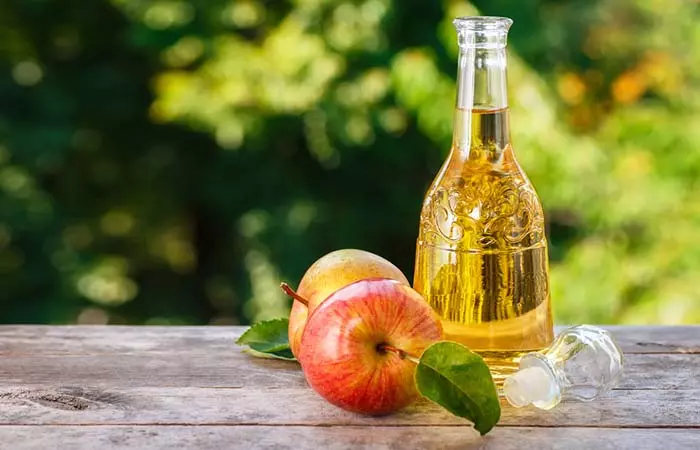
You Will Need
- 1 tablespoon of apple cider vinegar
- 1 glass of warm water
What You Have To Do
- Add a tablespoon of raw apple cider vinegar to a glass of water.
- Mix well and add a little honey to the mixture and drink it up.
How Often You Should Do This
You must do this once daily.
Why This Works
Apple cider vinegar is acidic. It helps in restoring the pH balance of your mouth, promoting your oral health. This remedy also stimulates the production of saliva that helps in getting rid of the foul taste. Rinsing the mouth with a 2:1 solution of apple cider vinegar and water helps eliminate the revolting taste caused due to bacterial activity (1).
 Quick Tip
Quick Tip
2. Baking Soda
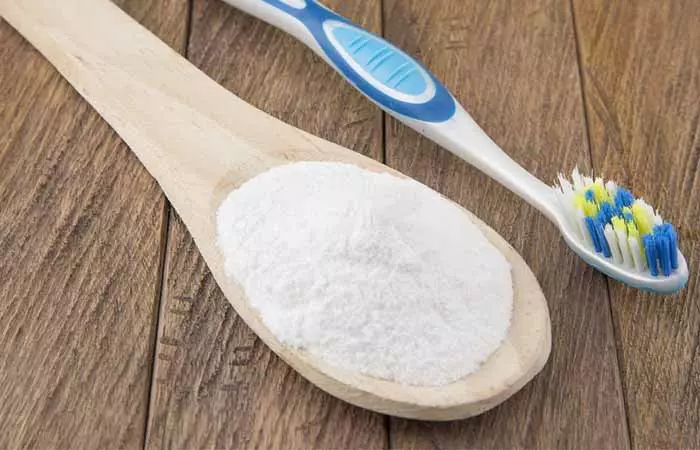
You Will Need
- 1 teaspoon of baking soda
- Lemon juice (a few drops)
What You Have To Do
- Take a teaspoon of baking soda and add a few drops of lemon juice to it.
- Use this paste to brush your teeth daily.
How Often You Should Do This
Do this once daily.
Why This Works
Using baking soda for bad breath is a common practice. The alkaline nature of baking soda can help in restoring the pH of your mouth. Its exfoliating properties can also help in getting rid of the plaque deposits on your tongue and teeth, thus helping with the foul taste or smell (2).
3. Oil Pulling
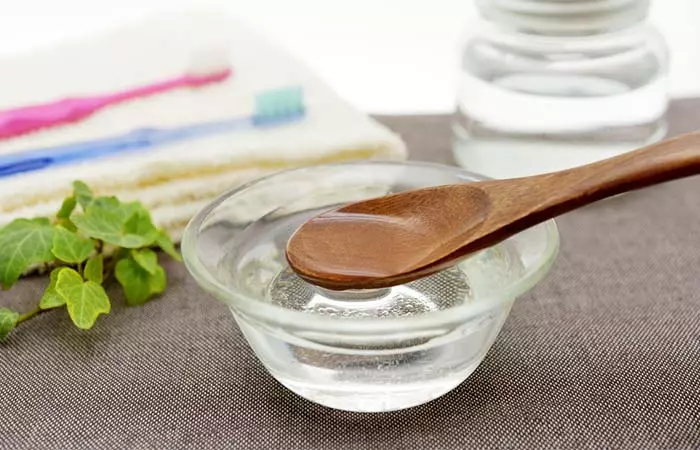
You Will Need
1 tablespoon of coconut or sesame oil
What You Have To Do
- Take a tablespoon of coconut or sesame oil and swish it inside your mouth for about 10 to 15 minutes.
- Spit the oil and go about brushing your teeth normally.
How Often You Should Do This
You must do this once every morning.
Why This Works
Oil pulling helps in plaque removal and addresses various oral conditions (like oral thrush, bad breath, and gingivitis) that may be causing a foul taste in your mouth
(3).
4. Warm Salt Water
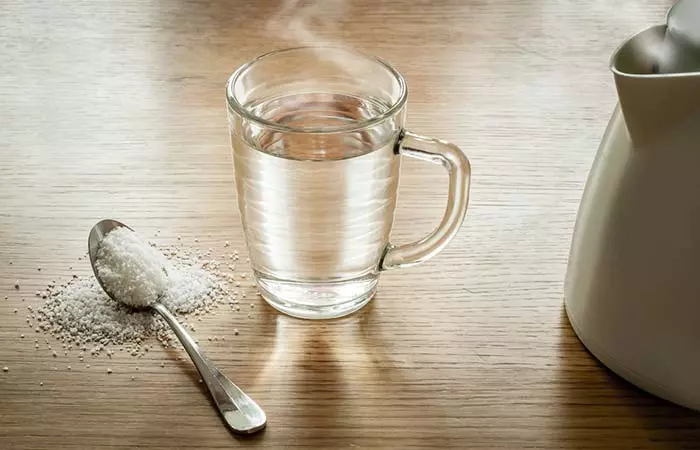
You Will Need
- 1 teaspoon of salt
- 1 glass of warm water
What You Have To Do
- Add a teaspoon of salt to a glass of warm water.
- Mix well and use this solution to rinse your mouth.
How Often You Should Do This
You must do this 2 to 3 times daily.
Why This Works
Salt has natural antiseptic properties that can prevent the build-up of infectious oral bacteria.
Regularly rinsing your mouth with the salt solution can help eliminate the foul taste and smell of your mouth, thus reducing the unappetizing feeling (4).
5. Hydrogen Peroxide
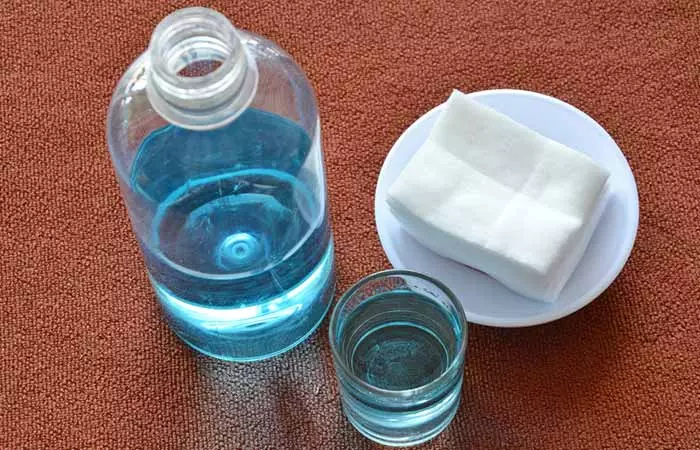
You Will Need
- 1 tablespoon of 3% hydrogen peroxide solution
- 2 tablespoons of water
- A soft bristle brush
What You Have To Do
- Mix a tablespoon of 3% hydrogen peroxide with two tablespoons of water.
- Dip a soft bristle brush in the hydrogen peroxide solution.
- Gently brush your tongue and the insides of your mouth with this solution.
How Often You Should Do This
You must do this once daily.
Why This Works
Hydrogen peroxide is a strong antibacterial agent that combats the infectious oral pathogens that could be causing your mouth to taste weird and disgusting. It provides a healthy oral environment by eliminating bad bacteria (5).
6. Aloe Vera Juice
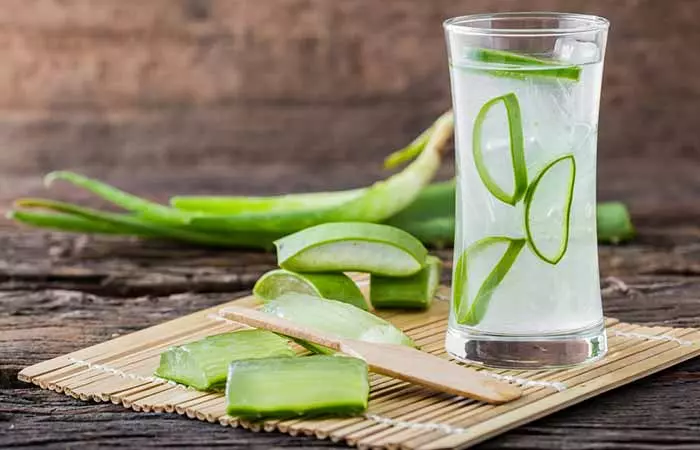
You Will Need
1 teaspoon of fresh aloe juice
What You Have To Do
- Take a teaspoon of fresh aloe vera juice and swish it in your mouth for about 5 minutes.
- Spit the juice out.
- Alternatively, you can also drink half a cup of aloe vera juice.
How Often You Should Do This
Do this twice daily.
Why This Works
Aloe vera juice has antimicrobial and anti-inflammatory activities that heal oral infections and treat the foul disagreeable taste and smell that accompany such oral problems (6).
7. Turmeric
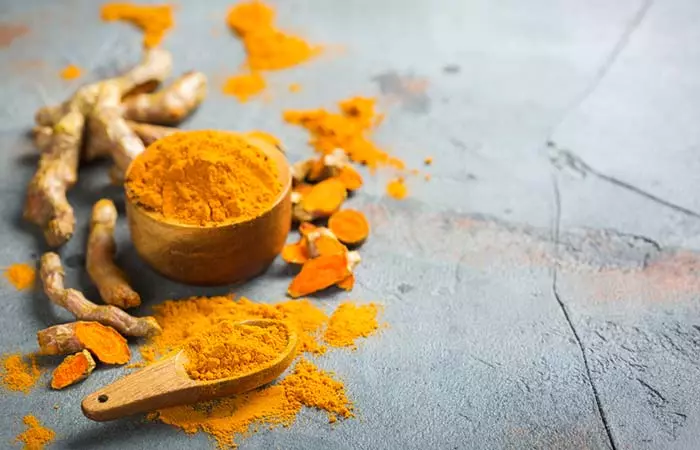
You Will Need
- ½ teaspoon of turmeric powder
- A few drops of lemon juice
What You Have To Do
- Add a few drops of lemon juice to half a teaspoon of turmeric powder.
- Apply this thick paste to your tongue and the insides of your mouth.
- Rinse your mouth with lukewarm water.
How Often You Should Do This
Do this once daily for about 2 weeks to see the desired effects.
Why This Works
Turmeric contains curcumin, a powerful antibacterial agent that kills all the bad bacteria in your mouth, promotes oral health, and eliminates the bad taste (7). Turmeric can help combat gastrointestinal issues like acid reflux that can cause an acrid taste in the mouth.
8. Lemon
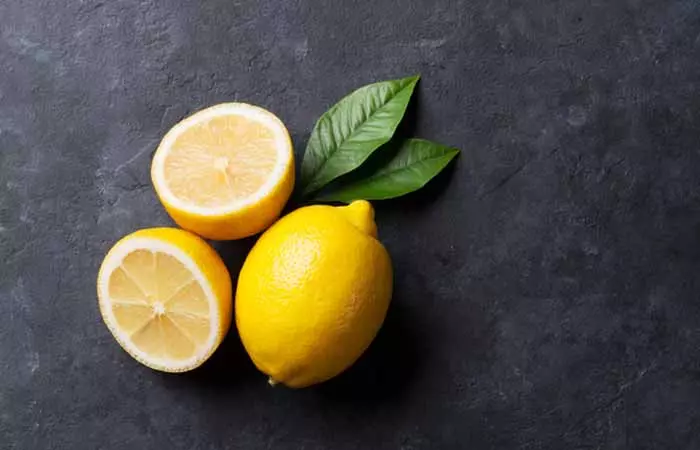
You Will Need
- 1 lemon
- 1 glass of warm water
What You Have To Do
- Squeeze the juice of a lemon into a glass of warm water.
- Mix well and use this solution to rinse your mouth.
How Often You Should Do This
Do this once daily for at least a week to start seeing results.
Why This Works
The vitamin C in lemons restores the lost pH of your mouth. Also, the bactericidal activities of lemon can keep oral pathogens away, thus preventing further oral problems (8), (9). Citrus fruits like oranges and lemon can overpower the vile taste in the mouth and make it less repulsive.
 Quick Tip
Quick Tip9. Green Tea
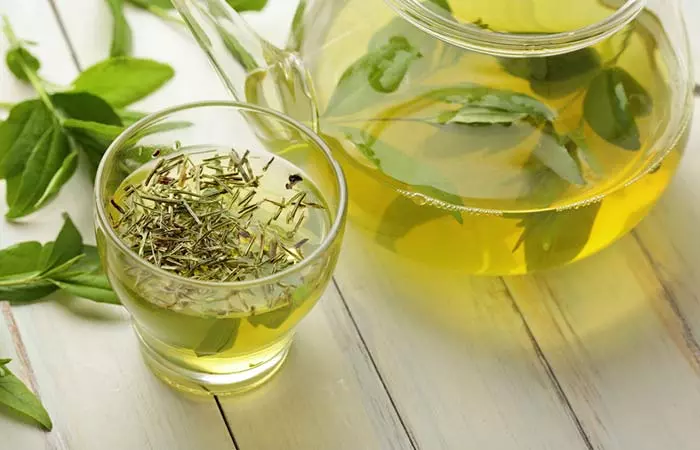
You Will Need
- 1 teaspoon of green tea
- 1 cup of water
- Honey (optional)
What You Have To Do
- Add a teaspoon of green tea to a cup of water.
- Bring it to a boil in a saucepan and simmer for 5 minutes.
- Strain and allow the tea to cool down for some time.
- Add a little honey to the tea and consume immediately.
How Often You Should Do This
You must drink green tea at least twice daily to avail all its benefits.
Why This Works
Green tea is a great remedy for oral infections. Along with promoting oral health, green tea can also help eliminate the bad taste and foul smell in your mouth (10).
10. Cinnamon
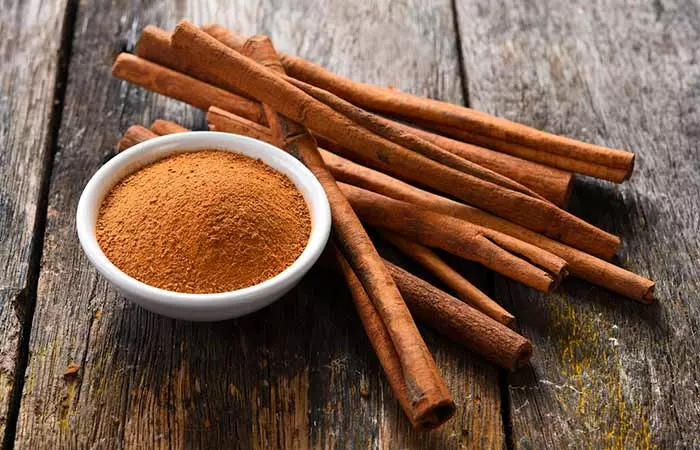
You Will Need
- ½ tablespoon of cinnamon powder
- ½ lemon
- 1 glass of warm water
What You Have To Do
- Add half a tablespoon of cinnamon powder and the juice of half a lemon to a glass of warm water.
- Mix well and use this solution to rinse your mouth at regular intervals.
- Alternatively, you can also use a drop or two of cinnamon essential oil instead of cinnamon powder.
How Often You Should Do This
You must do this 2 to 3 times daily.
Why This Works
Cinnamon is yet another remedy that can help eliminate the bad taste in your mouth, owing to its antibacterial properties. It can easily combat oral infections and promote your overall oral health by eliminating oral pathogens (11).
11. Fennel Seeds
You Will Need
- 1 teaspoon of fennel seeds
- 1 cup of hot water
What You Have To Do
- Add the fennel seeds to a cup of hot water.
- Let it steep for about 5-10 minutes.
- Strain it properly and drink the fennel seed tea.
How Often You Should Do This
Drink this tea 2-3 times a day or as needed.
Why This Works
The antimicrobial properties of fennel seeds may prevent infections and keep the mouth clean. The aromatic nature of the seeds also may help freshen breath and alleviate bad taste in the mouth. They may help stimulate the production of saliva and increase its pH (12).
Note: It is important to speak with a healthcare provider if, after a reasonable amount of time, using home remedies does not help with the bad taste in your mouth. A persistent bad taste may indicate an underlying medical condition that needs to be evaluated and treated.
These remedies can help prevent infections and address the bad taste issue. But haven’t you wondered why you are experiencing this issue? Wouldn’t it be easier to understand the cause and prevent it before it worsens? Keep reading to learn more about it.
What Causes A Bad Taste In Your Mouth?
A bad taste in your mouth that lasts even after you have brushed your teeth could be due to the following
causes:
Oral Causes
- Poor oral hygiene and dental problems
- Dry mouth
- Oral thrush
Infections
- Respiratory infections like sinusitisi Inflammation of the sinuses due to mucus buildup resulting in a blocked nose, pain, and swelling around the facial area. , colds, tonsillitisi The inflammation of the tonsils due to a bacterial infection causing tender lymph nodes, a sore throat, and difficulty swallowing. , etc.
- Hepatitisi An inflammatory condition of the liver caused by several contagious viruses and noncontagious agents, and can be acute or chronic.
- Pregnancy
- Menopause
- Acid reflux
Medications And Supplements
- Dietary or vitamin supplements
- Medications like antihistamines, diabetes medicines, oral contraceptivesi A method of birth control involving drugs, technology, or surgery. Pills, vasectomy, IUDs, and condoms are some preventive measures. , antibiotics, antidepressants, etc.
Cancer Treatment
- Chemotherapy
- Radiation therapy
Neurological Conditions
Conditions that affect the nerves in your brain, like:
- Brain tumors
- Dementiai A group of symptoms that impair memory, thinking, and social skills and interfere with a person's ability to perform daily tasks.
- Head injury or trauma
- Epilepsyi A central nervous system (neurological) disorder that causes seizures or periods of strange behavior and loss of consciousness.
Lifestyle Factors
- Alcohol
- Smoking
Ashley, a blogger, noticed a strange bitter taste in her mouth. She notes, “And it turns out that some pine nuts (apparently many from China) can leave those who eat them with a bitter aftertaste in their mouths… It’s been dubbed “Pine Mouth” and the symptoms of the bitter, sometimes metallic aftertaste can appear up to three days after a person has consumed the nuts in question and can last up to four weeks (i)!!”
If you often have a bad taste in your mouth, you may also experience a few of the following symptoms, depending on the underlying cause.
Signs And Symptoms
Individuals who suffer from oral problems may notice symptoms like:
- Bad breath
- Bleeding gums
- Red or swollen tissues in the mouth
- Tooth sensitivity
Other symptoms that may be prevalent in individuals who also have a bad taste in their mouth are:
- Nausea
- Vomiting
- Loss of taste and smell
- Difficulty in eating
- Diarrhea
- Bad breath
These symptoms could be traced to causes like acid reflux, hepatitis, respiratory infections, or oral thrush.
Since the off-putting taste in your mouth can interfere with your appetite and cause nutritional deficiencies, it is best to get this condition treated immediately. Knowing how to get rid of bad breath may also help address this issue to some extent.
However, you must also understand that your diet choices have a significant role to play in your health and well-being. They are also critical to help you overcome the bad taste in your mouth. Hence, you must take the following diet tips into consideration in addition to following the home remedies.
What To Eat To Get Rid Of Bad Taste In The Mouth
Those who have a bad taste in their mouth usually have a low sense of taste and may be intolerant to certain foods. Some foods that can be tolerated by affected individuals are:
- Fresh fruit juices (orange or lemon)
- Eggs, fish, peanut butter, beans, and dairy products like yogurt and ice cream
- Hard candies
The affected individuals must stay away from spicy, sugary, and oily foods.
To prevent the recurrence of the sickening bad taste in your mouth, follow the tips mentioned below.
Prevention Tips
- Brush and floss daily.
- Use a mouthwash to rinse your mouth regularly.
- Chew on sugar-free gum to encourage the production of saliva.
- Drink enough water and keep yourself hydrated.
- Limit your intake of alcohol and caffeine.
- Quit smoking tobacco.
Infographic: Types Of Taste Disorders
Factors like poor dental hygiene, infections, disorders, and medications can leave a bad taste in your mouth. Using natural ingredients like lemon, aloe vera, or cinnamon can reduce oral infections and the foul taste in your mouth. However, a bad taste in the mouth may also indicate an underlying condition and affect your sense of taste at various levels. Check out the infographic below to understand the different types of taste disorders.
Some thing wrong with infographic shortcode. please verify shortcode syntax
Poor oral hygiene is one of the primary causes of bad taste in the mouth. Apart from that, infections, and overeating certain foods such as garlic may also trigger bad taste. This issue can be extremely embarrassing and may make you self-conscious. Therefore, understanding how to get rid of the bad taste in your mouth with home remedies always helps. Simple ingredients such as apple cider vinegar, cinnamon, lemon, baking soda, hydrogen peroxide, aloe vera juice, warm salt water, etc. may effectively reduces the bad taste. Additionally, maintaining oral hygiene is also important. Therefore, ensure to brush and floss daily, stay hydrated adequately, quit smoking, and limit the intake of alcohol and caffeine.
Frequently Asked Questions
Is bad taste in the mouth a sign of diabetes?
Yes, a bad or bitter-sweet taste in the mouth can also be a sign of diabetes. Get yourself diagnosed medically for a confirmation.
Why do I have a rotten egg taste in my mouth?
If your mouth tastes yucky like rotten eggs, it could be due to either a gut infection or the accumulation of noxious hydrogen sulfide gas (from something that you had eaten).
What kills sulfur in the mouth?
The bacteria in your mouth can feed on the leftover debris inside your mouth and generate foul-smelling volatile sulfur compounds. To get rid of these toxic compounds, you must brush, floss, and use a mouthwash regularly.
Does bad taste in the mouth occur during pregnancy?
A change in the sense of your taste (dysgeusia) can occur during pregnancy as a result of pregnancy hormones. Some pregnant women may experience a nauseating metallic or sour taste in the mouth even if they are not suffering from any specific medical condition.
What cancers cause a metallic taste in your mouth?
Lung cancer and its treatment might leave you with a metallic taste in your mouth. Some feel distasteful to any food after chemotherapy, or have a rancid chemical taste in the mouth. But mostly these concerns disappear after the end of chemotherapy sessions. (13)
Can liver problems cause a metallic taste in the mouth?
Although uncommon, liver disease may lead to a chemical buildup in the body and lead to a metallic taste in the mouth (the chemical compounds render saliva a metallic taste).
Key Takeaways
- Poor oral hygiene, sinus, and hepatitis can lead to a bad taste in your mouth.
- Bleeding gums and swollen mouth tissues are a few accompanying symptoms of bad breath.
- Rinsing your mouth with warm salt water may help eliminate bad breath.
- Practicing proper oral hygiene, drinking plenty of water, and avoiding meals with a strong flavor can help rescue bad mouth odor.
Illustration: Home Remedies For Bad Taste In The Mouth, Causes, & Symptoms
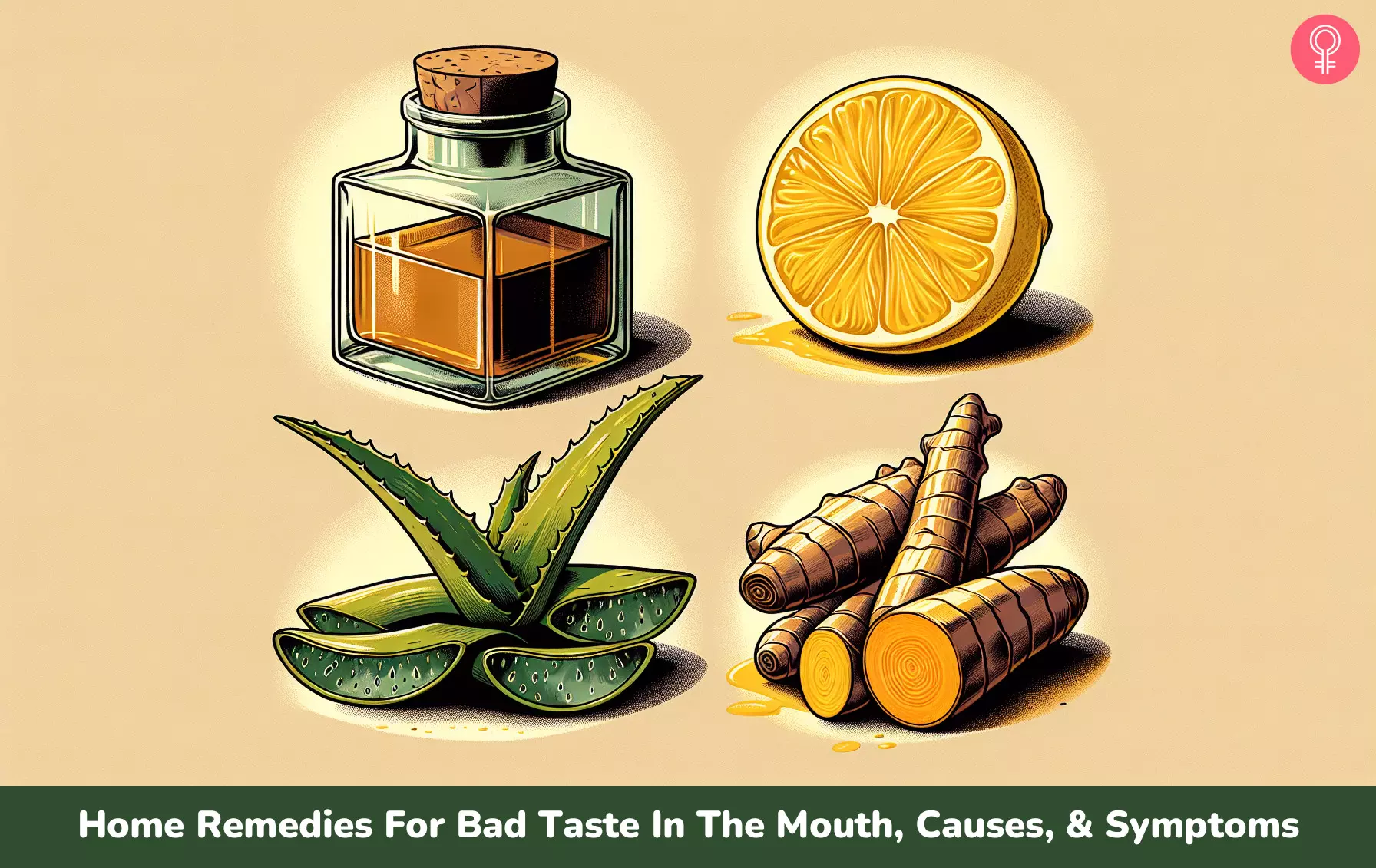
Image: Dall·E/StyleCraze Design Team
There are several reasons for getting a bitter taste in the mouth. Watch the video given below to learn what causes it and how to get rid of it.
Personal Experience: Source
StyleCraze's articles are interwoven with authentic personal narratives that provide depth and resonance to our content. Below are the sources of the personal accounts referenced in this article.
i. THE CAUSE OF THE BITTER TASTE IN MY MOUTHhttps://www.dancingthroughlifeblog.com/2009/07/cause-of-bitter-taste-in-my-mouth.html?m=1
References
Articles on StyleCraze are backed by verified information from peer-reviewed and academic research papers, reputed organizations, research institutions, and medical associations to ensure accuracy and relevance. Read our editorial policy to learn more.
- Apple Cider Vinegar For Health: 100 Amazing and Unexpected Uses for Apple Cider Vinegar.
https://books.google.co.in/books?id=mSYuDgAAQBAJ&&pg=PA78 - Baking Soda for Health: 100 Amazing and Unexpected Uses for Sodium Bicarbonate
https://books.google.co.in/books?id=c_YxDwAAQBAJ - Oil pulling for maintaining oral hygiene – A review
https://www.ncbi.nlm.nih.gov/pmc/articles/PMC5198813/ - Doctors’ Favorite Natural Remedies: The Safest and Most Effective Natural Ways to treat More Than 85 Everyday Ailments
https://books.google.co.in/books?id=uvREDAAAQBAJ - Antibacterial activity of hydrogen peroxide and the lactoperoxidase-hydrogen peroxide-thiocyanate system against oral streptococci.
https://www.ncbi.nlm.nih.gov/pmc/articles/PMC186138/ - Antibacterial Effect of Aloe Vera Gel against Oral Pathogens: An In-vitro Study
https://pubmed.ncbi.nlm.nih.gov/28050502/ - Antibacterial Action of Curcumin against Staphylococcus aureus: A Brief Review
https://www.ncbi.nlm.nih.gov/pmc/articles/PMC5124450/ - [Vitamin C]
https://pubmed.ncbi.nlm.nih.gov/17173758/ - Bactericidal activity of lemon juice and lemon derivatives against Vibrio cholerae
https://pubmed.ncbi.nlm.nih.gov/11041258/ - Green tea: a promising natural product in oral health
https://pubmed.ncbi.nlm.nih.gov/22226360/ - Comparative study of cinnamon oil and clove oil on some oral microbiota
https://pubmed.ncbi.nlm.nih.gov/22783715/ - The effect of fennel seeds on pH of saliva – A clinical study
https://pubmed.ncbi.nlm.nih.gov/22783715/ - Subjective and objective taste and smell changes in cancer.
https://pubmed.ncbi.nlm.nih.gov/28327968/
Read full bio of Dr. Thomas Connelly
Read full bio of Shaheen Naser
Read full bio of Arshiya Syeda
Read full bio of Dipti Sharma












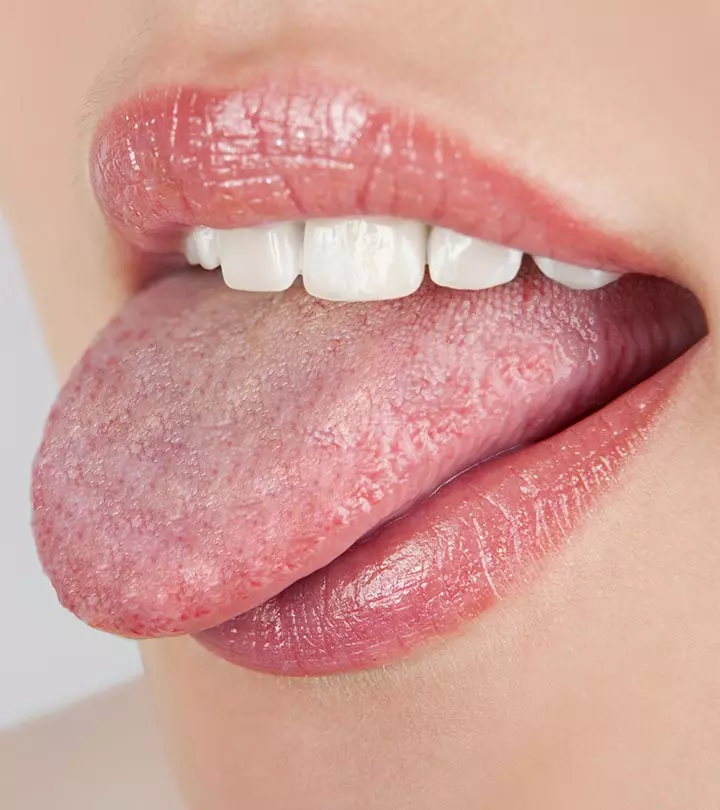

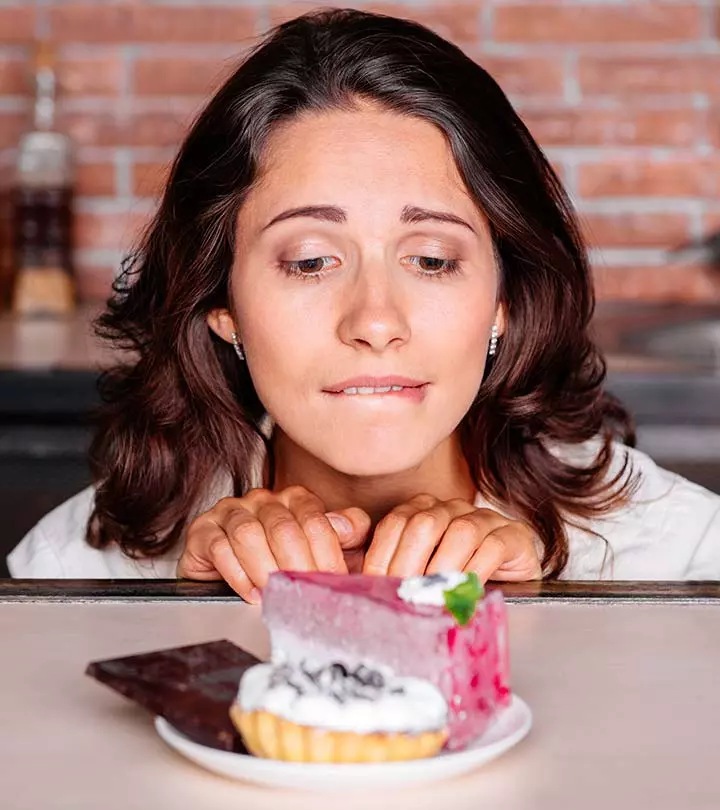
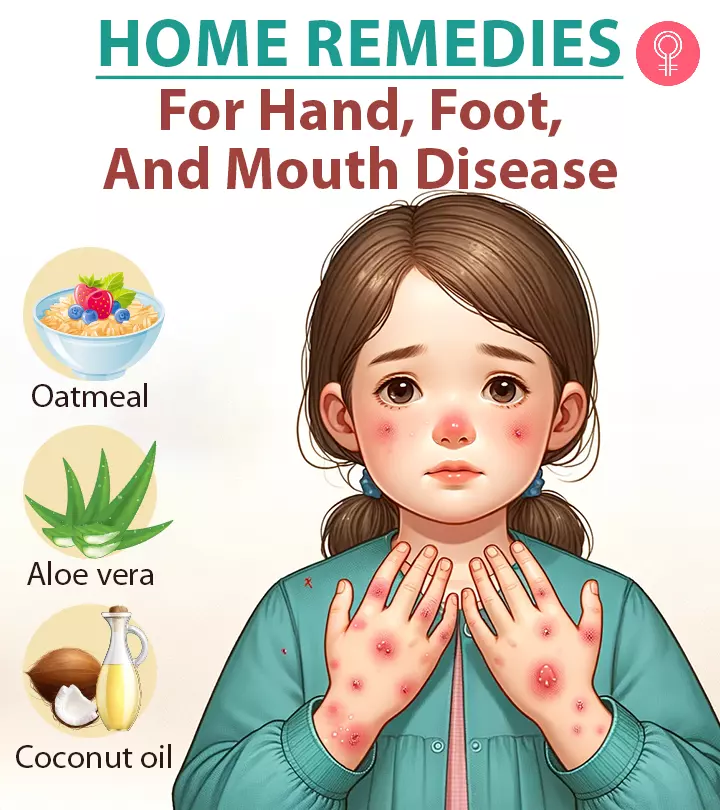



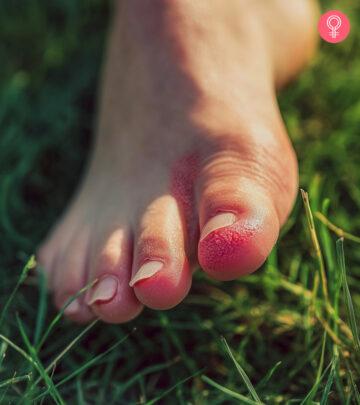



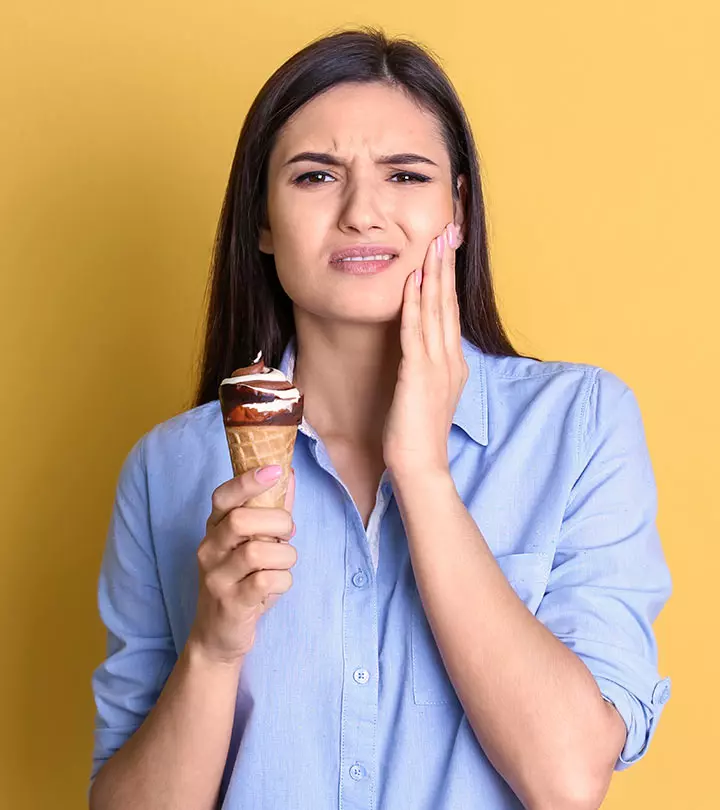
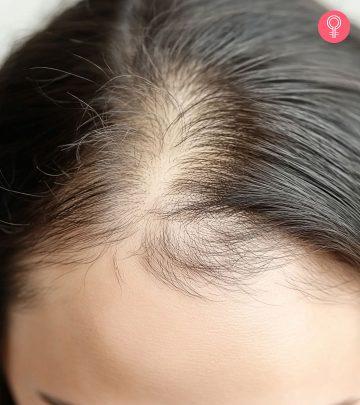

Community Experiences
Join the conversation and become a part of our empowering community! Share your stories, experiences, and insights to connect with other beauty, lifestyle, and health enthusiasts.